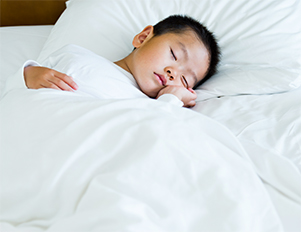What a Good Night’s Sleep Means for You and Your Child

Are you getting enough sleep? Or are you staying up too late, either web-surfing or perhaps searching for Pokémon in your neighborhood? No matter what novelty has grabbed your waking hours, it’s important to get enough sleep each night. Practicing habits that encourage a good night’s sleep, known as sleep hygiene, can help you better cope with ADHD. In fact, a recent study has shown that proper sleep hygiene can improve ADHD symptoms.
“Various sleep problems affect 25 percent to 50 percent of children with ADHD,” according to the Harvard Mental Health Letter. “Typical problems include difficulty falling asleep, shorter sleep duration, and restless slumber. The symptoms of ADHD and sleeping difficulties overlap so much it may be difficult to tease them apart…And children with these sleeping disorders may become hyperactive, inattentive, and emotionally unstable—even when they do not meet the diagnostic criteria for ADHD.”
What you can do to improve the chances of a good night’s sleep:
Keep a regular sleeping schedule. It’s helpful for your body to be in a routine of falling asleep and waking at the same time each day. This includes on the weekends and vacation, if possible.
Avoid eating or drinking things that may overstimulate you. Avoid foods and drinks that contain caffeine such as coffee, tea, or chocolate, starting in the late afternoon. Avoid nicotine and alcohol when close to your bedtime.
Turn off gadgets at least an hour before bedtime. The glow coming out of electronic screens can actually delay the release of the sleep-inducing hormone, melatonin. Additionally, watching television, surfing the internet, and playing on your phone can be overstimulating and make it difficult to go to sleep.
Make your room an inviting place to sleep. Keep your bedroom dark and cool when you’re going to sleep. Keep the bedroom for sleeping and avoid doing working or watching TV in bed.
Exercise during the day. Exercise helps get out some of your hyperactivity and restlessness. Be careful, though, since exercising too close to bedtime can rev you up and make it more difficult to fall asleep. Try not to exercise within three hours of bedtime.
Looking for more information? Read about sleep and sleep disorders.
